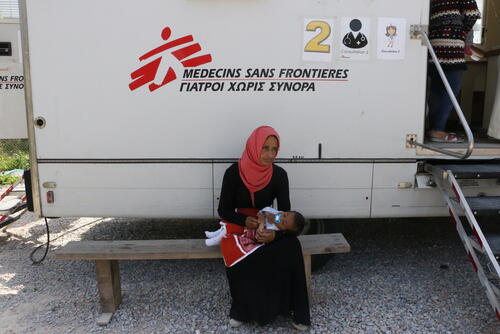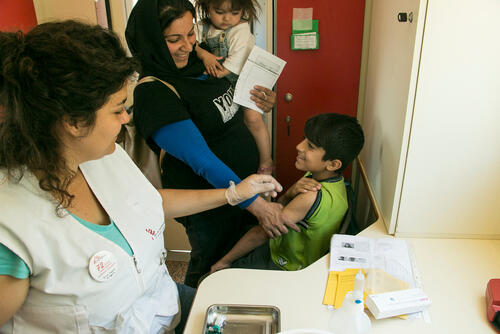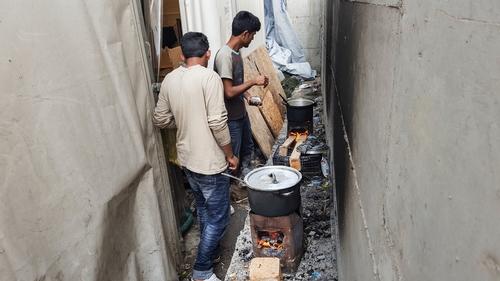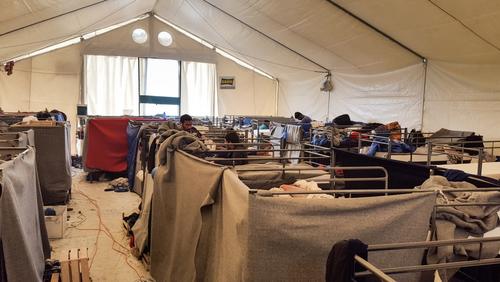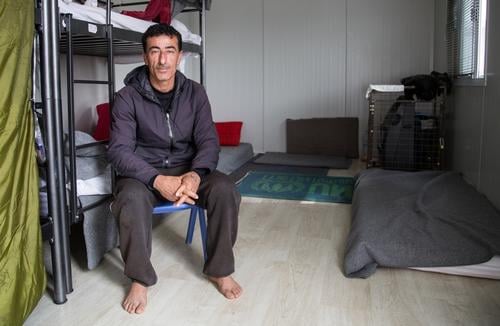As the Greek Prime Minister, Alexis Tsipras, visits Lesbos, Greece for a regional conference, Médecins Sans Frontières (MSF) warns that the situation on Lesbos is, once again, reaching breaking point. As a result of the Greek government’s continued policy of containing migrants and refugees on the Greek islands at any cost, thousands of men, women and children in Lesbos are living in squalid, overcrowded conditions, with insufficient access to health care. With around 500 new people reaching Lesbos every week, the overcrowding, as well as increased demand for healthcare and other services, are pushing the camp to breaking point. MSF is calling on the Greek authorities to immediately transfer people from Lesbos to the mainland, and in addition, immediately scale up the provision of healthcare on the island.
In the government-run camp of Moria there are currently more than 7,000 people in a camp that was built for a maximum of 2,500 people. The living conditions and the reduction in the provision of medical care represent a high risk to the health and lives of the people trapped on the island.
“Moria camp is both unsafe and unsanitary, especially for children. Every day we treat many hygiene-related conditions such as vomiting, diarrhoea, skin infections and other infectious diseases, and we must then return these people to the same risky living conditions. It’s an unbearable vicious circle,” says Declan Barry, MSF’s medical coordinator. “The mix of unhygienic and dangerous living conditions which increase the rate of childhood illnesses, the obstacles to providing appropriate recovery conditions for sick children, and the inadequate access to healthcare services, represent a perfect storm for the health and well-being of children.”
MSF - which has been providing paediatric care and sexual and reproductive healthcare to women living in Moria camp since the end of 2017 - has seen the demand for paediatric services double in the past two months. The demand for our sexual and reproductive health service this month is twice that of the previous month. In the past few weeks, MSF teams have treated 60 paediatric patients a day and have also been turning approximately 15 patients away daily, unable to meet the increasing medical needs of children in the camp. This is extremely alarming given that there is very limited access to healthcare at night and during weekends in Moria camp, and the children in need of medical care are very vulnerable.
In addition, the provision of primary healthcare for adults in Moria camp is extremely limited, with very few other medical consultants providing healthcare during the week, and just one volunteer organisation providing a reduced healthcare service during nights and on weekends. The only public hospital in Lesbos is overwhelmed and understaffed, and patients struggle to access the specialised services it does provide.
“For months we have warned of a dramatic deterioration of the health and mental health situation in Lesvos. The authorities have not responded to meet this very clear and present need, and the suffering of the population continues to deteriorate: every day in our clinic we see patients with urgent needs, including many cases of suicidal attempts and self-harm,” says Katerina Katopodi, MSF nurse in Lesbos. “We urge the Greek government to stop this inhumane and unsustainable policy of containment on the islands and immediately increase the provision of medical care for these families pushed to their limits”.



